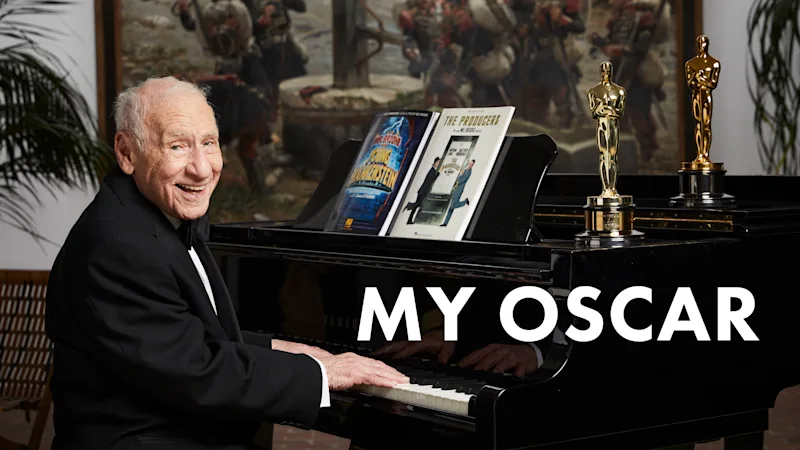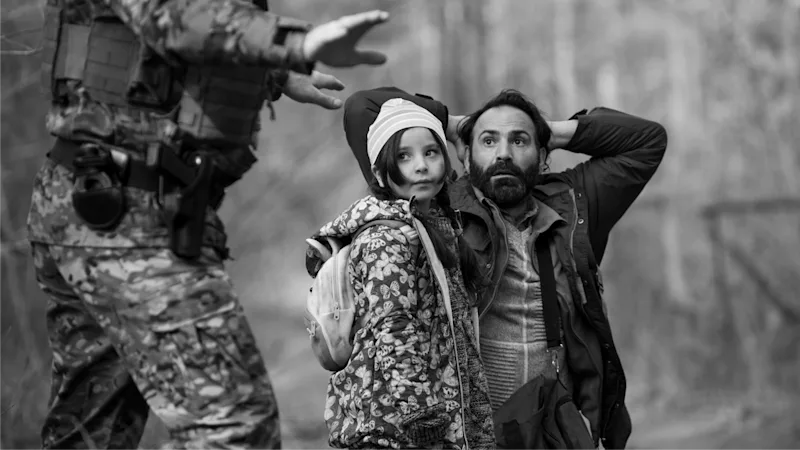Three William Shakespeare plays become one sprawling story in The King, which charts the tale of young Hal (Timothée Chalamet) as he becomes King Henry V and has an evolving lifelong rapport with the disreputable Falstaff (Joel Edgerton). Both actors were joined by director David Michôd, composer Nicholas Britell and producer Dede Gardner to explain how this historical epic came to life.

“I performed when I was 25, I guess, Henry IV, Parts I and II, and the following year we did Henry V,” Edgerton recalled. “This was in Australia and we toured it around, so I’ve done over a hundred performances of both productions and it’s been on my mind for such a long time. Fifteen years later the opportunity arose for me to get behind creating projects and producing things and coming up with ideas... I’d been asked about doing various movies that were like period films that didn’t really pull on my interest levels, my heartstrings, but felt reflective of and inspired by Shakespearean epic kind of tales. And it made me think about the players again and I thought, ‘Well, it had been 25 years since [Kenneth] Branagh had done Henry V. Would somebody be interested in making a film about Henry?’ ”

Discussions with Sydney-based Michôd in 2013 led to the idea of using the Shakespeare text to integrate aspects of real history, though the director noted he was reluctant because “the world of medieval swords and horses and stuff was never my natural go-to. But also because the idea of Shakespeare, of tackling it in any form scared the living hell out of me. But you know, I love Joel and so if he asked me to do something, I tend to just do it.”
Chalamet, a fan of Michôd’s Animal Kingdom (2010), explained that “I love that almost all of David’s movies deal with what we’d call now a toxic masculinity. Maybe throughout history we’re just the either evil or induced evil whims of men. I read it and I really couldn’t see myself in it, and that was very exciting and I thought the script was excellent. But then in talking to David, realizing there was no contest with Kenneth Branagh or Laurence Olivier simply because it would be hopeless… David explained to me the language wasn’t the same here, and this was the attempt at getting a searing portrait of a young man and circumstance that’s too great for him, with a skill set and a level of experience and a level of a political experience and familial experience that is no good for the circumstances at hand.”

Edgerton said his Falstaff was inspired by John Oldcastle, whom some believe to be the real-life inspiration for the character: “This idea that he may have been based on a man who had fought and led armies on behalf of Richard II and I believe Henry as well, and had befriended Hal because of their common dislike for the way Henry IV was running the business, kind of became exciting. I’ve spent a lot of time in pubs doing research and I always find the most fascinating sort of drunks or kind of barflies are not just the sort of silly old floppy guys, but the dangerous ones.” He deliberately avoided the approach of Orson Welles’ own Falstaff film, Chimes at Midnight (1965), realizing that his own real age, 45, would have been considered old by the 26-year-old Hal. Ultimately, he says, he had “this image of a young kind of Ray Winstone guy, who’s sort of war-weary and still quite dangerous and wise because of his experience, with enough of the spice of the original character Falstaff in terms of wiliness, and is he worth trusting, and a little bit of humor.”

Chalamet was full of praise for Britell’s score, which the composer approached with the mission statement, “What if this were the 25th century and not the 15th century, what would that sound like?” He achieved that by “experimenting with what I thought might be very sort of strange sounds, like looking at the early 1400s like they were this foreign planet. So I took these bass clarinets and played them out of their range and ran them through this sort of tape filter, which created this almost like strange human sound. And David and I spent a whole week in March in my studio in New York, where we were just really playing with sounds, taking metal and bending it and seeing what that did. But then I did a whole deep dive on late medieval and early Renaissance music.”

Gardner had worked with Michôd on War Machine (2017) and had already seen this script from Edgerton. The film eventually found a home at Netflix, which allowed them creative freedom including shooting in large format with the ALEXA 65 camera. She had to coordinate many challenges on the production including the Battle of Agincourt, complete with “the mud, the heat, the horses, the battle, the armor, but also the safety anxiety.” “They can train up the wazoo for as long as they want,” Michôd added. “These things can be choreographed and stunt coordinated, but as soon as you get out there with just 300 extras wearing helmets they can barely see through, horses, who knows what they’re going to do, mud that’s just slipping, the planning just falls away immediately. The beauty of is, it ends up on the screen. But I’m there watching a monitor going, ‘I hope they don’t die!’ ”
Watch the full discussion:







